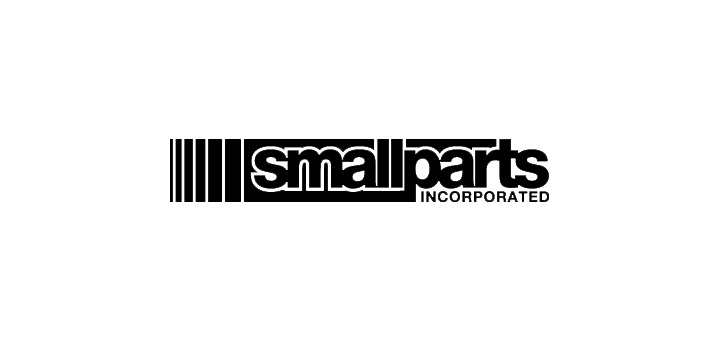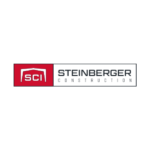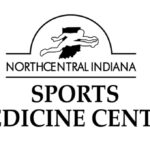Last Updated on March 27, 2020 by Office of Senator Mike Braun
SOURCE: News release from the Office of U.S. Senator Mike Braun
JASPER, IN – Today, U.S. Senator Mike Braun (R-IN) released the following statement praising the House of Representatives for passing the Senate’s relief package which will provide much-needed relief for Hoosier small businesses and workers.
Senator Mike Braun is also releasing a resource guide to help Hoosier small businesses and employees navigate the state and federal efforts to combat the economic crisis created by the public health battle being waged against the novel coronavirus. The resource guide can be found below.
“I am proud
that the House of Representatives quickly passed the CARES Act,
which will give our hospitals the tools they need to combat the
coronavirus, provide immediate
help to those who have lost their jobs, and give small business owners
the largest relief package ever to keep their doors open, which I was
personally involved with securing.
“Additionally, my office has created a small business and employee
resource guide and my office is working around the clock to help
Hoosiers who have been affected by the coronavirus.
“I am also pleased to announce that General Motors will be making 10,000 ventilators a month at their facility in Kokomo and I am humbled by the countless number of Hoosiers who have stood up to help our country during this time.”

Senator Mike Braun’s COVID-19 Affected Business & Employee Resource Guide
The resources contained within this document are a culmination of state and federal efforts to combat the economic crisis created by the public health battle being waged against the novel coronavirus. For help on any issues related to COVID-19 please contact my office using CoronavirusHelp@braun.senate.gov.
Coronavirus Aid, Relief, and Economic Security (CARES Act)/H.R. 748
Small Business Paycheck Protection Program
The CARES Act allows the Small Business Administration to begin making loans of up to $10 million under the Paycheck Protection Program with an overall authorization level of $349B. This section is effective February 15, 2020.
- Qualifications: The Paycheck Protection Program will be conducted as part of the SBA 7(a) Loan program, general qualifications can be found here. The PPP also includes 501(c)(3) nonprofits, 501(c)(19) veteran organizations, tribal businesses described in section 31(b)(2)(C) of the Small Business Act, sole-proprietors, independent contractors, and other self-employed individuals.
- Loans: Loans can used for payroll support, paid leave, insurance costs, mortgage/rent payments, and utility payments. They do not have borrower, lender, or prepayment fees and are 100% government guaranteed. Repayment may be deferred for up to one year.
- Forgiveness: All Paycheck Protection Program Loans are eligible for forgiveness in an amount equal to the payroll cost and costs related to debt obligations.
General Business Financing
The CARES Act appropriates $500 Billion to the Department of Treasury’s Exchange Stabilization Fund (ESF), including a 13(3) facility to provide targeted support to nonprofits and businesses between 500 and 10,000 employees.
- Provides $454 billion for
unforgivable secured loans through the Federal Reserve 13(3) authority to larger businesses, states, and municipalities.
- Funds lent to nonprofits and businesses between 500 and 10,000 employees must be used to retain at least 90 percent of the recipient’s workforce, among other requirements.
General Business Tax Provisions
- Employee retention credit for employers: A refundable payroll tax credit for 50% of wages paid to employees during the COVID-19 crisis is available to those whose operations were fully or partially suspended due to a COVID-19-related closure order or gross receipts declined by more than 50% compared to the same quarter in the prior year.
- Delay of payment of employer payroll taxes: Employers and self-employed individuals are allowed to defer payment of the employer share (generally 6.2%) of the Social Security tax they otherwise are responsible for paying with respect to their employees.
The Cares Act modified a number of tax provisions in an effort to allow corporations and small businesses access to liquidity:
- Qualified Improvement Property (QIP) fix: This fix from the TCJA provides businesses, especially in the hospitality industry, to write off immediately costs associated with improving facilities instead of having to depreciate those improvements over the 39-year life of the building.
- Net Operating Losses (NOL) Credit: A net operating loss (NOL) arising in a tax year beginning in 2018, 2019, or 2020 can be carried back five years and the taxable income limitation is temporarily removed to allow an NOL to fully offset income.
- AMT Credit: Companies are now allowed to recover AMT credits immediately rather than extending until 2021.
- Limitation on business interest: Increases to 50% the limitation of taxable income for 2019 and 2020.
Unemployment Insurance Enhancements
- Pandemic Unemployment Assistance program provides payment to those not traditionally eligible for unemployment benefits (self-employed, independent contractors, those with limited work history, and others) who are unable to work as a direct result of the coronavirus public health emergency.
- Includes an additional $600 per week payment to each recipient of unemployment insurance or Pandemic Unemployment Assistance for up to four months and an additional 13 weeks of unemployment benefits to those who need it.
- Provides funding to support “short-time compensation” programs, to pay 100% of costs incurred when employers reduce employee hours instead of laying them off.
Amendments to Employee Mandates
The CARES Act placed caps on paid leave provisions within the FFRCA (described below).
- An employer is not required to pay more than $200 per day and $10,000 in the aggregate for each employee on paid FMLA and is not required to pay more than $511 per day and $5,110 in the aggregate for sick leave or more than $200 per day and $2,000 in the aggregate to care for a quarantined individual or child.
Families First Coronavirus Response Act (Public Law No: 116-127)
Paid Leave
American businesses with fewer than 500 employees have access to funds to provide employees with paid leave, either for the employee’s own health needs or to care for family members.
- Employees of eligible employers can receive two weeks (up to 80 hours) of paid sick leave at 100% of the employee’s pay where the employee is unable to work because the employee is quarantined, and/or experiencing COVID-19 symptoms, and seeking a medical diagnosis.
- An employee who is unable to work due to a need to care for an individual subject to quarantine, to care for a child whose school is closed or child care provider is unavailable for reasons related to COVID-19, can receive two weeks (up to 80 hours) of paid sick leave at 2/3 the employee’s pay, and, may in some instances receive up to an additional ten weeks of expanded paid family and medical leave at 2/3 the employee’s pay.
Link: Fact Sheet for Employees
Employer Assistance
- Employer Reimbursement: Eligible employers will receive a dollar-for-dollar credit for the paid sick leave and family leave that they provide under this program. Self-employed individuals receive an equivalent credit.
- Prompt Payment for the Cost of Providing Leave: The Treasury will use its regulatory authority to allow businesses to utilize employment tax withholdings that have already been deposited to pay sick leave wages. In the event that such withholdings are insufficient, the Treasury will implement a system to accelerate payment of credits to cover such costs.
- Eligible employers who pay qualifying sick or child care leave will be able to retain an amount of the payroll taxes equal to the amount of qualifying sick and child care leave that they paid, rather than deposit them with the IRS.
- The payroll taxes that are available for retention include withheld federal income taxes, the employee share of Social Security and Medicare taxes, and the employer share of Social Security and Medicare taxes with respect to all employees.
- If there are not sufficient payroll taxes to cover the cost of qualified sick and child care leave paid, employers will be able file a request for an accelerated payment from the IRS. The IRS expects to process these requests in two weeks or less. The details of this new, expedited procedure will be announced soon and our office is monitoring for updates.
Small Business Protection: Businesses with less than 50 employees are eligible for an exemption through the Dept. of Labor from the sick leave and family leave provisions where those requirements may create serious financial hardship
Links: Fact Sheet for Employers, Department of Labor Questions and Answers
Non-Enforcement Period
- Department of Labor will be issuing a temporary non-enforcement policy that provides a period of time for employers to come into compliance.
Small Business Economic Injury Disaster Loans (EIDL)
The Small Business Administration is offering low-interest federal disaster loans for working capital to Indiana small businesses suffering substantial economic injury as a result of the Coronavirus (COVID-19). Maximum amounts lent to businesses of any size under the disaster loan program are $2M, carry an interest rate of 3.75% for small businesses with terms up to 30 years.
- Applicants may apply online at https://disasterloan.sba.gov/ela.
- State of Indiana has 10 regional Small Business Development Centers providing free assistance. Links: 3-Step Application Process, Economic Injury Fact Sheet
The CARES Act expands eligibility to the EIDL program to tribal businesses, cooperatives, and ESOPs with fewer than 500 employees or any individual operating as a sole proprietor or an independent contractor.
This document was prepared as an informational resource and should not be considered legal or business counsel. Please do not hesitate to reach out to CoronavirusHelp@braun.senate.gov for questions, concerns, or additional assistance.
Click here to download Senator Braun’s COVID-19 Affected Business & Employee Resource Guide






